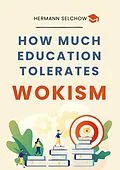The critical nonfiction book on the current university crisis A well-founded analysis of freedom of expression at German and American universities The German and American higher education landscape is currently undergoing a period of profound change. While these developments are often framed under the banner of progress and social justice, closer examination also reveals problematic aspects that raise critical questions. This book systematically examines how the increasing politicization of university life affects students who express dissenting opinions or pose critical questions. Using documented cases from Germany and the USA, it demonstrates the mechanisms at work when young people question the prevailing consensus. Who is this book relevant for? This book is aimed at anyone concerned about the future of academic freedom. Parents will find important information here about the ideological currents their children can expect at university. Students gain insights into the complex social dynamics of campus life. Educational leaders and university faculty can use the developments presented as an opportunity to reflect on their own institutions. A necessary contribution to the educational debate The developments documented here are not limited to individual universities or countries. They reflect an international trend that affects the foundations of the Western educational tradition. The book is intended as a contribution to a long-overdue social discussion about the future of higher education. The presentation of the psychological and social mechanisms that lead to self-censorship and conformity is particularly valuable. Readers gain a deeper understanding of why many young people abandon their authentic beliefs and submit to a system that rewards conformity and punishes originality. A balanced perspective The book avoids one-sided blame and simple solutions. Instead, it acknowledges the complexity of the situation and demonstrates how various social forces have contributed to the developments described. This nuanced approach makes the work a valuable resource for anyone who seriously wants to engage with the challenges of today's educational landscape. The book is suitable for both professionals and interested laypeople. The essayistic style makes complex connections accessible without sacrificing analytical depth. Anyone seeking to understand current debates about freedom of expression, diversity, and academic standards will find a well-founded and insightful analysis here. An important contribution to the diagnosis of our times, one that stimulates reflection and invites a nuanced discussion about the future of our educational institutions.
Autorentext
Hermann Selchow, Jahrgang 1956, wurde in Schleswig-Holstein geboren. Er wuchs in Schwerin in Mecklenburg-Vorpommern auf. Schon in frühen Kindertagen war er vernarrt in Literatur. Vor allem hatten es ihm die klassische Literatur, aber auch Sachbücher und Philosophie angetan. Die Heldensagen und Schreiber der griechischen Antike sind ebenfalls eine alte Liebe. In seiner Jugend unternahm er erste Gehversuche in der Schreiberei und veröffentlichte einige Kurzerzählungen in einigen Magazinen. Später arbeitete er von 1986-1994 am Schweriner Staatstheater, wo er diese Liebe ausleben und zum Beruf machen konnte. Er machte sich dann einige Jahre artfremd selbstständig. Im Alter von 67 Jahren traute er sich dann wieder öffentlich, als Autor aktiv zu werden. Er lebt zur Zeit in der Nähe von Hamburg. Hermann Selchow veröffentlichte inzwischen mehrere Bücher zu aktuellen und zeitbezogenen Themen. Dabei versucht er seinen eigenen Blickwinkel auf die Geschehnisse der Gegenwart und jüngeren Vergangenheit zu finden, ohne die möglichen Ursachen aus den Augen zu verlieren oder zu verfälschen. ====================================== Hermann Selchow, born in 1956, was born in Schleswig-Holstein. He grew up in Schwerin, Mecklenburg-Western Pomerania. From an early age, he was passionate about literature. He was particularly drawn to classical literature, but also non-fiction and philosophy. The heroic sagas and writers of ancient Greece are also a long-standing passion. In his youth, he took his first steps in writing and published several short stories in several magazines. Later, from 1986 to 1994, he worked at the Schwerin State Theater, where he was able to pursue this passion and turn it into a career. He then went into business for himself for a few years. At the age of 67, he dared to become a public author again. He currently lives near Hamburg. Hermann Selchow has since published several books on current and contemporary topics. In doing so, he tries to find his own perspective on the events of the present and recent past, without losing sight of or distorting the possible causes.
